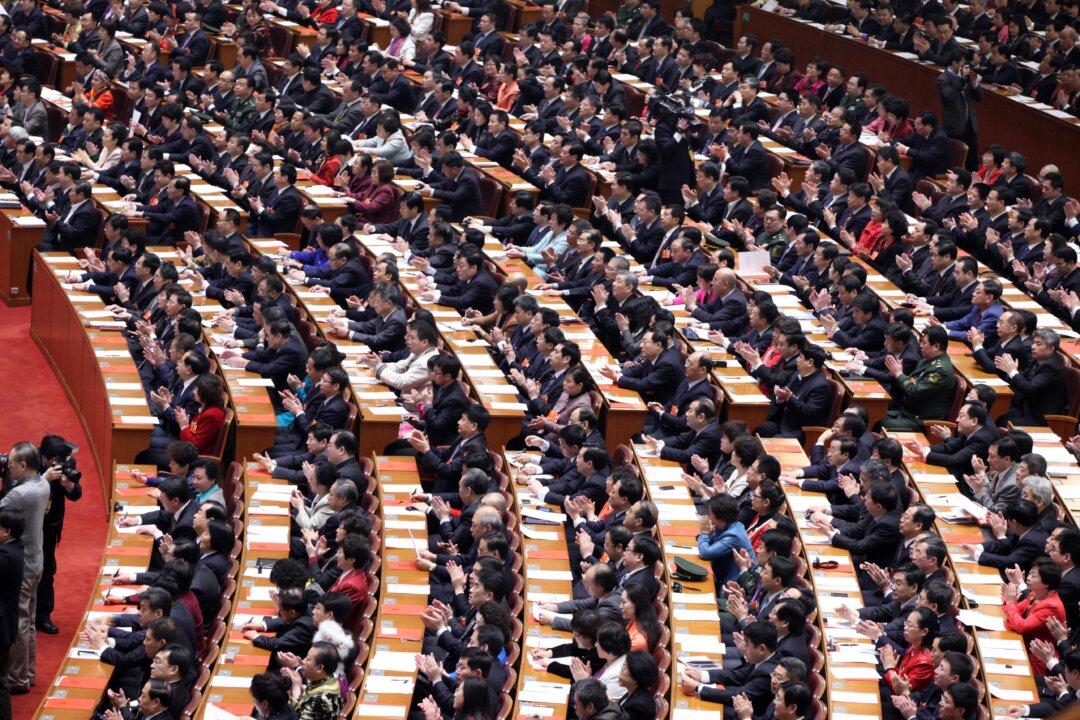A vast official bribery ring in the central province of Hunan was reported by Chinese state media recently, resulting in the resignation of over 500 municipal officials and the sacking of 56 higher-level lawmakers who bribed them.
The scandal involved 518 deputies and 68 of their staff members in the municipal People’s Congress of Hengyang City, the second largest in Hunan Province. They were bribed by 56 lawmakers from the next level up, part of the Hunan provincial People’s Congress.
The deputies are ostensibly elected and then are supposed to participate in the election of lawmakers at the provincial level, one rung up the hierarchy.
In all, over 600 individuals were implicated in the scandal.
The news was revealed by the Standing Committee of the Hunan People’s Congress during a major meeting it held from Dec. 27–28.
The lawmakers were said to have bribed nearly all— 518 out of 527—of the municipal deputies in the city of Hengyang. State media said the sums involved exceeded 110 million yuan ($18.1 million).
Xinhua, the Party mouthpiece, placed blame for the fraud at the feet of Tong Mingqian, former vice chairman of the Hunan Chinese People’s Political Consultative Conference, an official advisory body to the Communist Party.
Tong has been under investigation for “serious violations of law” since Dec. 18, according to an announcement by the Party’s disciplinary agency. Xinhua said that Tong, who was in charge of the election, is “directly responsible for the case.”
Nevertheless, fraudulent elections are common in China, according to experts.
“Election bribery is widespread in China,” said Yao Lifa, a civil rights activist and the first Chinese elected through self-nomination to a municipal-level People’s Congress. “I’ve participated in the election of deputy of Provincial People’s Congress. So I know some inside stories, such as controlling the nominations, controlling the voting, and bribery, etcetera,” he said in an interview with New Tang Dynasty Television.
Yao said that instead of calling it an election, it is more accurate to say that the deputy positions are chosen and bought. “To common people, the election is just a form and process. They have no control over it.”
The disclosure of such a large-scale case of bribery was probably triggered by revelations earlier this year by Chinese entrepreneur Huang Yubiao, who was one of the unsuccessful candidates in last year’s elections in Hengyang.
Huang said he personally gave more than 300 deputies bribes of 320,000 yuan ($52,700) in total, but still failed in the election because he didn’t give enough.
Huang was upset and angry with the corruption, and his failure to be elected, and decided to expose it to the public, according to an interview he gave to Beijing News.
Those revelations from a participant put the Hunan authorities under pressure to investigate the matter and give the public an explanation.
The current Chinese communist leadership has been running a high-profile anti-graft campaign in recent months, part of an attempt to combat the perception that the Party is hopelessly corrupt—an idea that would be corrosive to the legitimacy of one-party rule.
Yao Lifa, the activist, said that if Huang Yubiao had not blogged about the matter, the Hunan authorities would have been quite content with keeping the scandal hidden.
Over 500 Chinese Officials Exposed in Bribery Scandal
A vast official bribery ring in the central province of Hunan was exposed recently.

Delegates attend the closing session of the National People's Congress (NPC) at the Great Hall of the People on March 17, in Beijing, China. A bribery election scandal that involved over 500 deputies of a local People’s Congress in Hunan Province was exposed over the weekend. ChinaFotoPress/ChinaFotoPress via Getty Images
|Updated:



